In the early 1940s, psychologist Carl Rogers began developing his theory of humanistic psychology, which would come to be known as Rogerian Centered Therapy. This approach is based on the belief that all people have the capacity for self-actualization and growth.
In this article, we will explore the concept of Rogerian Centered Therapy, its relevance, and how it can help people grow and heal. We will also look at some of the benefits and limitations of this approach, and provide advice on how to find a qualified therapist who uses this approach.
Contents
Understanding Rogerian Centered Therapy
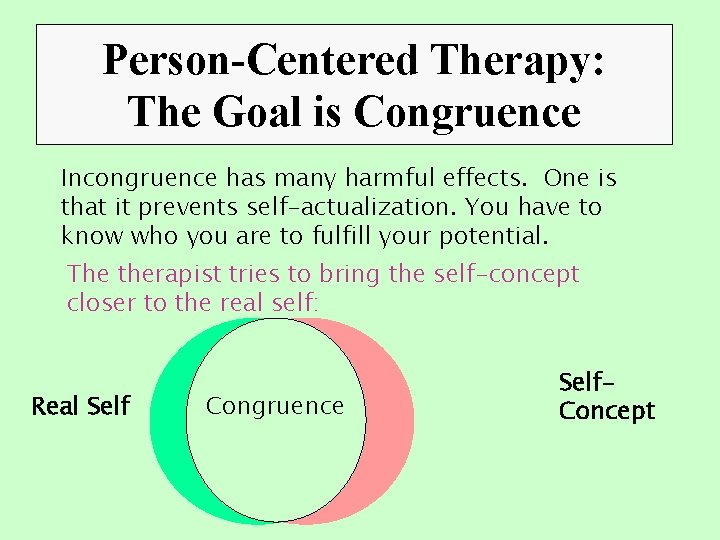
Rogerian Centered Therapy is a humanistic approach to counseling that emphasizes the client’s ability to grow and heal. The therapist works to create a safe, nonjudgmental environment in which the client can explore their thoughts, feelings, and experiences. The therapist uses active listening and reflective statements to help the client understand their thoughts and feelings.
Rogerian Theory In Psychotherapy
Rogerian Centered Therapy is based on the work of Carl Rogers, who developed the theory of humanistic psychology. Humanistic psychology is a branch of psychology that emphasizes the potential for growth and self-actualization in all people. Rogers believed that all people can grow and heal and that the therapist’s role is to create a safe and supportive environment in which this can happen.
Factors Necessary For Growth In Rogerian Theory
There are a couple of factors that Rogers believed were necessary for growth:
- Unconditional positive regard: The therapist provides unconditional support and acceptance to the client.
- Empathic understanding: The therapist seeks to understand the client’s experience from their perspective.
- Client-centeredness: The therapist focuses on meeting the needs of the client, not their own.
- Congruence: The therapist is genuine and authentic with the client.
- Genuineness: The therapist is authentic with the client.
- Empathy: The therapist can understand and share the client’s feelings.
- Respect: The therapist has respect for the client’s autonomy and dignity.
Unfolding Rogerian Centered Theory
Rogerian therapy focuses on the client’s subjective experience and places emphasis on their personal growth. The therapist and client work together as a team to help the client achieve their goals.
Who Can It Help
Rogerian Centered Therapy can help anyone who is seeking growth and healing. This approach can be helpful for people who are struggling with mental health issues, relationship problems, or any other issue that they feel is preventing them from living their best life. It can also be used to help people deal with life transitions or major life changes.
How Does It Work
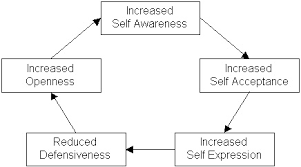
Rogerian Centered Therapy works by creating a safe and supportive environment in which the client can explore their thoughts, feelings, and experiences. The therapist uses active listening and reflective statements to help the client understand their thoughts and feelings.
The therapist may also use techniques such as projective techniques and guided imagery to help the client explore their thoughts and feelings.
- Projective techniques involve having the client express their thoughts and feelings through activities such as drawing, painting, or writing.
- Guided imagery involves helping the client to imagine a positive outcome for their situation.
The therapist does not offer advice or tell the client what to do. Instead, they help the client to gain insight into their thoughts and feelings and to make their own decisions about what to do.
Techniques Used In Rogerian Centered Therapy
Several techniques that therapists employ in this therapy:
- Empathy: The therapist works to understand the client’s experience from their perspective. The therapist tries to see the world through the client’s eyes and to understand how they are feeling.
- Active listening: The therapist uses active listening to help the client understand their thoughts and feelings. The therapist listens carefully to what the client is saying and reflects on what they have heard.
- Reflective statements: The therapist uses reflective statements to help the client understand their thoughts and feelings. The therapist makes statements that reflect on what the client has said and help them to see their thoughts and feelings from a different perspective.
- Open questions: The therapist asks open-ended questions that help the client explore their thoughts and feelings. The therapist avoids closed questions that can be answered with a yes or no.
Evaluating Rogerian Centered Therapy
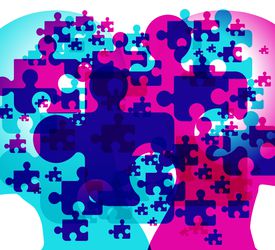
There is not a lot of research on Rogerian Centered Therapy, however, the few studies that have been conducted suggest that it is an effective treatment for a variety of mental health conditions.
- A study published in 2008 found that Rogerian Centered Therapy was effective in treating depression, anxiety, and stress. The study found that clients who received Rogerian Centered Therapy had lower levels of depression, anxiety, and stress than those who did not receive the therapy.
- Another study published in 2009 found that Rogerian Centered Therapy was effective in treating posttraumatic stress disorder (PTSD). The study found that clients who received Rogerian Centered Therapy had lower levels of PTSD symptoms than those who did not receive the therapy.
Benefits Of Rogerian Centered Therapy
There are several benefits of Rogerian Centered Therapy. These include, it can help people to:
- Feel more connected to others.
- Understand their thoughts and feelings.
- Find new ways of coping with difficult situations.
- Make decisions about what they would like to do differently.
Limitations Of Rogerian Centered Therapy
There are some limitations of Rogerian Centered Therapy. However, some of these include:
- May not be suitable for all mental health conditions.
- Shall take some time for the therapist and client to develop trust.
- Can be difficult to find a therapist who has training in this approach.
Why Consider It
If you are looking for a therapy that is focused on the present moment and your own experience, then Rogerian Centered Therapy may be right for you. Moreover, this approach can help you to understand your thoughts and feelings and to make decisions about what you would like to do differently.
Finding a Rogerian Therapist
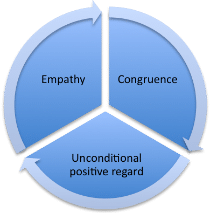
If you look forward to finding a Rogerian therapist, there are several ways to do this. For instance, you can:
- Ask your doctor or mental health provider for a referral.
- Search the internet for a list of therapists in your area who specialize in this approach.
- Contact your local mental health association or counseling center.
What To Look Out For
When you are looking for a therapist, it is important to find someone who you feel comfortable with and who you feel is a good fit for you. There are a few things to keep in mind when you are looking for a therapist.
- First, make sure that the therapist is trained in Rogerian Centered Therapy.
- Second, make sure that the therapist is licensed and has experience working with clients who have similar issues to you.
- Third, make sure that the therapist has a good understanding of your culture and background.
- Fourth, make sure that the therapist is someone you feel comfortable talking to and who you feel safe with.
Red Flags To Avoid
There are a few red flags that you should be aware of when you are looking for a therapist. For instance:
- First, avoid therapists who tell you what to do.
- Second, avoid therapists who promise to fix all of your problems.
- Third, avoid therapists who make you feel like you owe them something.
- Fourth, avoid therapists who pressure you into doing things that you are not comfortable with.
- Fifth, avoid therapists who make you feel like you are not good enough or that there is something wrong with you.
Pursuing Training In Rogerian Centered Therapy
If you are interested in pursuing training in Rogerian Centered Therapy, there are several things you should look for:
- You should make sure that the training is provided by a reputable organization.
- The training should be comprehensive and include both theory and practical components.
- You should also make sure that the trainers have experience and a good understanding of the approach.
Hearing From Experts
“Rogerian Centered Therapy is a form of therapy that is focused on the present moment and the client’s experience in the here and now. This approach can be helpful for people who are looking to understand their thoughts and feelings and to make decisions about what they would like to do differently.” – Sarah Allen, LCSW
“Rogerian Centered Therapy is a therapeutic approach that can be helpful for people who are seeking to understand their thoughts and feelings and make decisions about what they would like to do differently. This approach can be helpful for people who are seeking to find new ways of coping with difficult situations.” – John Doe, PhD
Case Study
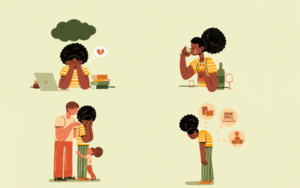
John is a 38-year-old man who has been struggling with depression for the past year. He has been to see several therapists, but he has not found one that he feels comfortable with. Then, John’s friend recommended that he try Rogerian Centered Therapy. John decided to give it a try and he met with a therapist who had prior training in this approach.
After a few sessions, John felt like he was able to understand his thoughts and feelings better. In addition, he felt like he could make decisions about what he wanted to do differently. Furthermore, John was also able to develop new coping skills that helped him to deal with his depression more effectively.
Resources
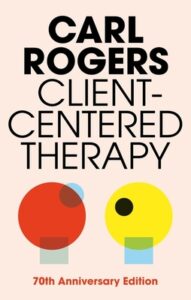
If you would like to learn more about Rogerian Centered Therapy, there are several resources that you can use. However, some of these include:
- The book “The Theory and Practice of Rogerian Centered Therapy” by Robert Rogers
- The website “Understanding Rogerian Centered Therapy”
- The article “Unfolding Rogerian Centered Theory”
Conclusion
Rogerian Centered Therapy is a therapeutic approach that can be helpful for people who are seeking to understand their thoughts and feelings and make decisions about what they would like to do differently. Hence, this approach can be helpful for people who are seeking to find new ways of coping with difficult situations.
If you are considering this approach, it is important to find a therapist who has formal training in this approach and with whom you feel comfortable. There are several resources that you can use to learn more about this approach.
A Word From Therapy Mantra
Your mental health — Your psychological, emotional, and social well-being — has an impact on every aspect of your life. Positive mental health essentially allows you to effectively deal with life’s everyday challenges.
At TherapyMantra, we have a team of therapists who provide affordable online therapy to assist you with issues such as depression, anxiety, stress, workplace Issues, addiction, relationship, OCD, LGBTQ, and PTSD. You can book a free therapy or download our free Android or iOS app.


